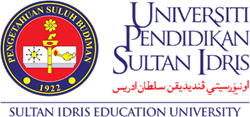Critical analysis of models of teacher educators’ preparation in Singapore and Tanzania
DOI:
https://doi.org/10.37134/jrpptte.vol12.2.7.2022Keywords:
Education, Models of teacher preparation, Singapore, Tanzania, teacher education, teacher educatorsAbstract
Despite the fact that teacher education determines the quality of teachers in a given country, various countries adopt various models of teacher educators’ preparation. Since such models vary in their effectiveness, it has led to some countries being far ahead of others in terms of the quality of their teacher education. Consequently, there has been a growing interest among researchers in comparing teacher education models of different countries as a way of revealing lessons that countries can learn from one another in relation to the models they adopt. Therefore, the present study aimed at comparing critically teacher education models adopted in Tanzania and Singapore to highlight lessons that Tanzania can learn from Singapore. The study was guided by the following questions: a) what are the models for teacher educators’ education in Singapore and Tanzania; b) how effective are the models used for teacher educators’ education in Singapore and Tanzania? The study revealed various models adopted in both Tanzania and Singapore. It has also examined the effectiveness of the revealed models. The study calls for Tanzania education system to link policies and practices with research findings and to centralized teacher education to improve its quality.
Downloads
References
Amadi, M. N. (2013). In-service training and professional development of teachers in Nigeria: Through open and distance education. Bulgarian Comparative Education Society.
Barrows, L. C., Dumitrescu, M.-A., Popa, V., & Pîslaru, V. (2003). Studies on higher education. UNESCO.
Chambulila, C. (2013). Quality enhancement in teacher education: Tanzanian teacher educators’ conceptions and experiences.
Chan, B. (2002). A study of the relationship between tutor’s personality and teaching effectiveness: Does culture make a difference? , The International Review of Research in Open and Distributed Learning, 3(2).
Chew, L. C. (2016). Teacher training and continuing professional development: The Singapore model. PROSIDING ICTTE FKIP UNS 2015, 1, 954–961.
Choo, & Darling-Hammond, L. (2011). Effective teachers and leaders in Singapore. In Teacher and Leaders Effectiveness in High-Performing Education System. Alliance for Excellent Education and the Stanford Center for Opportunity Policy in Education.
Darling-Hammond, L. (2017). Teacher education around the world: What can we learn from international practice? European Journal of Teacher Education, 40(3), 291–309. http://dx.doi.org/10.1080/02619768.2017.1315399
Dilshad, M., & Iqbal, H. M. (2010). Quality indicators in teacher education programmes. Pakistan Journal of Social Sciences (PJSS), 30(2).
Goodwin, A. L., & Kosnik, C. (2013). Quality teacher educators= quality teachers? Conceptualizing essential domains of knowledge for those who teach teachers. Teacher Development, 17(3), 334–346.
Greenland, J. (Ed.). (1983). The in-service training of primary school teachers in English-speaking Africa: A report. Macmillan.
Guskey, T. R., & Sparks, D. (1991). What to consider when evaluating staff development. 6.
Hammerness, K., & Klette, K. (2015). Indicators of quality in teacher education: Looking at features of teacher education from an international perspective. In Promoting and sustaining a quality teacher workforce. Emerald Group Publishing Limited.
Hardman, F., Abd-Kadir, J., & Tibuhinda, A. (2012). Reforming teacher education in Tanzania. International Journal of Educational Development, 32(6), 826–834.
Kafyulilo, C. A. (2013). Factors influencing teacher’s turnover in public secondary schools in Tanzania: A case study of Mbozi district council [PhD Thesis]. The University of Dodoma.
Kennedy, A. (2005). Models of continuing professional development: A framework for analysis. Journal of In-Service Education, 31(2), 235–250.
Komba, W. L., & Nkumbi, E. (2008). Teacher professional development in Tanzania: Perceptions and practices. Journal of International Cooperation in Education, 11(3), 67–83.
Lim, K. M. (2014). Teacher education & Teaching profession in Singapore education system in Singapore. Paper Presented at the International Conference on the Teaching Profession in ASEAN, Bangko. http://dx.doi.org/10.13140/2.1.3315.0726
Loughran, J. (2014). Professionally developing as a teacher educator. Journal of Teacher Education, 65(4), 271–283.
Mpisi, A., Groenewald, E., & Barnett, E. (2020). Experiencing’otherness’: Teacher educators’ journey with first year pre-service teachers. Issues in Educational Research, 30(2), 573–592.
Murray, J., & Male, T. (2005). Becoming a teacher educator: Evidence from the field. Teaching and Teacher Education, 21(2), 125–142.
Namamba, A., & Rao, C. (2017). Preparation and professional development of teacher educators in Tanzania: Current practices and prospects. Journal of Education and Practice, 10.
OECD (Ed.). (2009). Creating effective teaching and learning environments: First results from TALIS. OECD.
Yackulic, R. A. & Noonan, B.W. (2001). Quality indicators for teacher training in Canada. Paper prepared for The 2001 Pan-Canadian Education Research Agenda Symposium May 22-23, 2001, Lavel University Quebec City
Vavrus, F. (2009). The cultural politics of constructivist pedagogies: Teacher education reform in the United Republic of Tanzania. International Journal of Educational Development, 29(3), 303–311.
Villegas-Reimers, E. (2003). Teacher professional development: An international review of the literature. International Institute for Educational Planning Paris.
Zeichner, K. (2005). Becoming a teacher educator: A personal perspective. Teaching and Teacher Education, 21(2), 117–124.
Zuzovsky, R., & Donitsa-Schmidt, S. (2017). Comparing the effectiveness of two models of initial teacher education programmes in Israel: Concurrent vs. consecutive. European Journal of Teacher Education, 40(3), 413–431. http://dx.doi.org/10.1080/02619768.2017.1318377
Downloads
Published
How to Cite
Issue
Section
License
Copyright (c) 2022 Musa Saimon

This work is licensed under a Creative Commons Attribution-NonCommercial-ShareAlike 4.0 International License.




